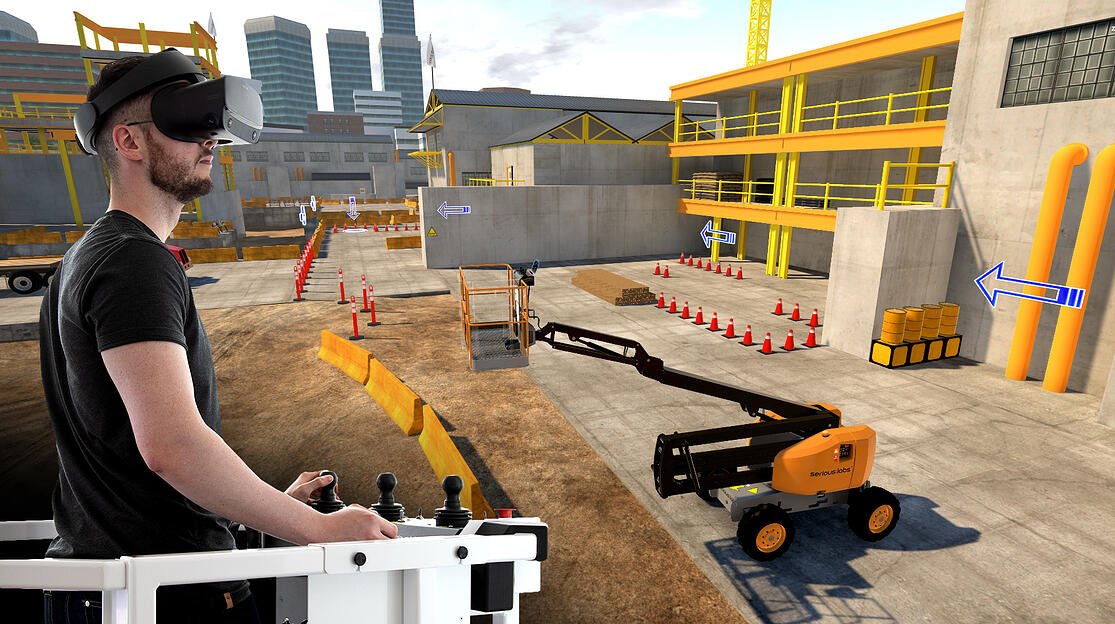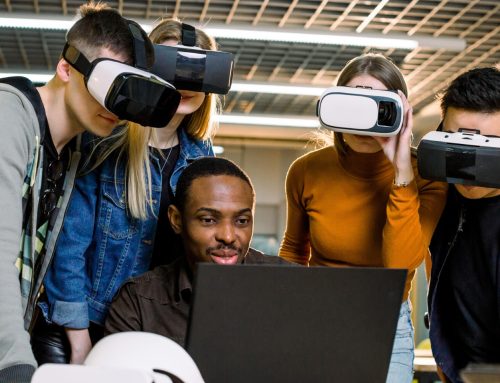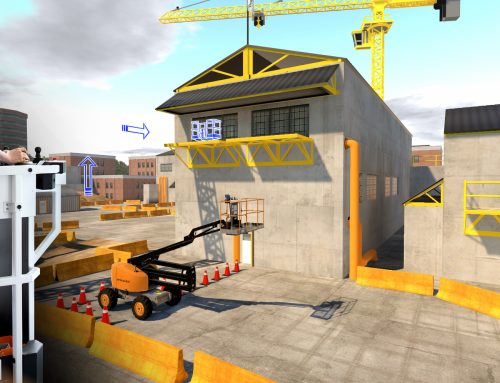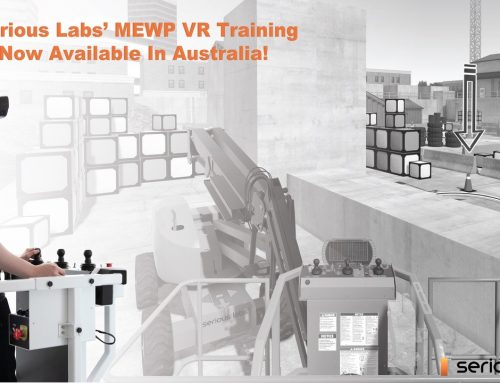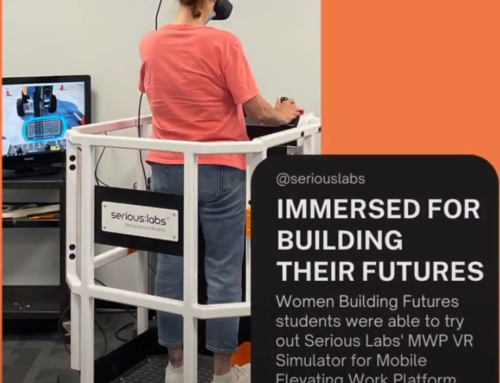In any group of Mobile Elevating Work Platform (MEWP) operators, there will be highly proficient operators as well as those who are less proficient – potentially even posing a safety risk on the jobsite. Understanding who these operators are is critical to maximizing safety and efficiency, yet most site managers are left using subjective observation and anecdotes to determine their workforce’s MEWP proficiency. This becomes even more challenging with large crews of dozens or hundreds of people working at height.
Understanding proficiency through data
The Serious Labs MEWP VR Simulator was developed as a tool to gather objective data on operators’ MEWP proficiency levels. This data enables never-before-seen insights into which operators are highly proficient and which operators’ low proficiency may pose a safety risk. Even more importantly, the simulator is designed to zero in on areas of low proficiency (e.g. safety checks or control selection and function) and improve them through targeted training.
Low-proficiency operators: What’s the risk?
The vast majority of MEWP accidents occur when low-proficiency operators carry out work at height and cause incidents as a result. Their proficiency might be low because they’re inexperienced, lack equipment familiarity, they’re poorly trained, or because it’s been a while since they used a MEWP. The average MEWP incident costs CA$40,000, and there are thousands of incidents each year. In the airline sector, damage to aircraft means the average cost of an accident is much higher. In addition, each year there are around 70 to 80 fatalities involving MEWPs.

